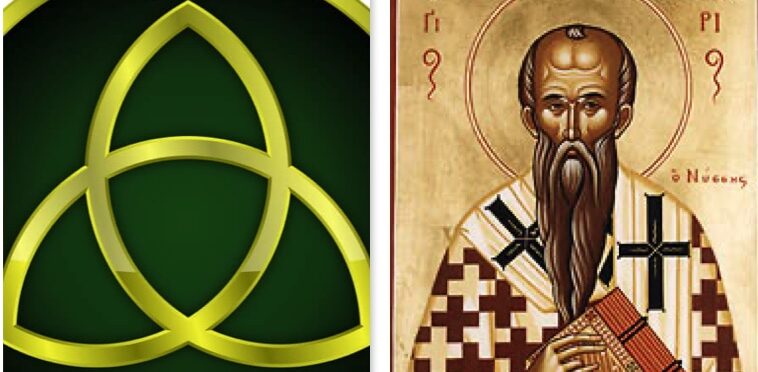On my YouTube video series Roman Catechism of Trent (RCT) we have been discussing the Trinity lately, especially “the Filioque.” The Filioque is Latin for “and the Son,” as you say in the Nicene Creed. This means that you believe “in the Holy Ghost, the Lord and Giver of Life, proceeding from the Father and the Son” (et in Spíritum Sanctum… qui ex Patre Filióque procédit.) However, most Eastern Orthodox insist the Holy Spirit proceeds only from the Father. Thus, most Eastern Orthodox reject the Filioque statement.
To be sure, there are two debates at hand (not just two sides) but actually two debates. The first debate (upon which this article will spend little time) is essentially this: “Can a Pope change a Creed?” I admit there are two good sides to this debate. It goes as follows:
The Nicene Creed (AD 325) became the Niceno-Constantinopolitan Creed in 381. By this point, the Creed spoken at the liturgy did not contain the Filioque in East or West. By the late 6th century, some Western dioceses added the Filioque to the Creed. However, it was not until the 11th century that Rome officially added the Filioque to the Latin Creed. Of course, the Eastern Orthodox up until today insist it was wrong for Rome to unilaterally change a creed 700 years after its Patristic formulation. I’m sympathetic to this argument since I don’t like people changing liturgy. But it’s secondary to the more important debate. The more important debate goes as follows:
Does the Holy Spirit proceed in reality from both the Father and the Son? Notice this Trinitarian debate on reality is much more important than a debate on the etiquette of credal evolution. To this question, the Eastern Orthodox still answer in the negative.
But the Orthodox are wrong on the Filioque from a Patristic stance on Divine Revelation. First, the Latin Fathers taught the Filioque. (That fact obviously goes without saying, which is why this article is not focusing on them.) But even the Eastern Fathers taught the Filioque:
- “What then is our likeness and equality to the Son? Rather, are not the Arians confuted on every side? And especially by John, that the Son is in the Father in one way, and we become in Him in another, and that neither we shall ever be as He, nor is the Word as we; except they shall dare, as commonly, so now to say, that the Son also by participation of the Spirit and by improvement of conduct came to be Himself also in the Father. But here again is an excess of irreligion, even in admitting the thought. For He, as has been said, gives to the Spirit, and whatever the Spirit has, He has from the Word.”—St. Athanasius, Third Discourse Against the Arians, 4th century. (The Word here is obviously the Logos, “the Eternal Word,” that is God the Son.)
- “[The] Father conveys the notion of unoriginate, unbegotten, and Father always; the only-begotten Son is understood along with the Father, coming from Him but inseparably joined to Him. Through the Son, and with the Father, immediately and before any vague and unfounded concept interposes between them, the Holy Spirit is also perceived conjointly.”—St. Gregory of Nyssa, Against Eunomius 1, 4th century. (Notice that Eastern Fathers often say the Holy Spirit proceeds from the Father through the Son, but that specific word “through” by no means excludes the Son from His eternal spiration.)
- “Since the Holy Spirit when He is in us effects our being conformed to God, and He actually proceeds from Father and Son, it is abundantly clear that He is of the divine essence, in it of essence and proceeding from it.”—St. Cyril of Alexandria, Treasury of the Holy and Consubstantial Trinity, # 34; 5th century.
This means there’s Scriptural and Patristic proof that the Holy Spirit proceeds from the Father and the Son, even if certain Christians insist the Nicene Creed shouldn’t have been altered 700 years post-production.
What do the Eastern Orthodox do with such saints and early preeminent Eastern theologians of Egypt and Cappadocia promoting the Filioque? They do mental gymnastics around all of the above quotes, claiming such Eastern Fathers only meant the Holy Spirit was sent by the Son in regards to an economy in history or was involved with Palamos’ odd energetic processions. These errors essentially insist that God’s actions in salvation history are different from His essence (deceit?) or assert changeable-energies can be found in the unchangeable God. Both of these answers are so theologically poor that they reach the level of being irresponsible, not just distasteful.
Eastern-Catholics should all believe in the Filioque, even if they refrain from saying it in the Creed at Divine Liturgy.
Mr. Matthew Plese has an excellent history of the Filioque in Dogmatic Councils here. There is also an [overwhelmingly] comprehensive video on the teaching of the Fathers regarding the Filioque here.
